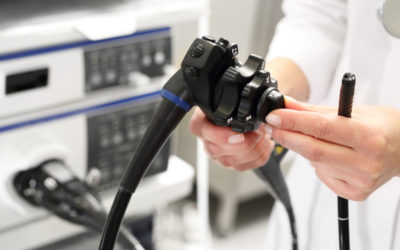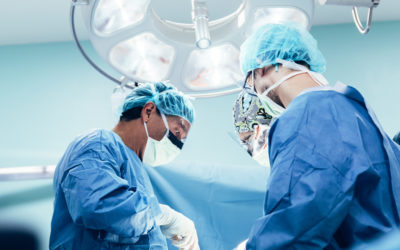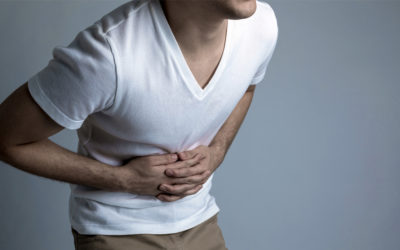GERD
Tired of that burning sensation in your chest — particularly at night?
Could your painful swallowing, nausea, heartburn be caused by Gastroesophageal reflux disease (GERD)?
If you experience a burning sensation in your chest, sometimes spreading to your throat, along with a sour taste in your mouth, difficulty swallowing, dry cough, regurgitation of food or sour liquid, it could be GERD (acid reflux). Many people suffering from GERD try antacids or prescriptions, which block the production of acid in the stomach and also protect the esophagus from damage. In addition to medication—eating smaller meals, sleeping on an incline and eliminating acidic foods from your diet may alleviate symptoms.
However, when medication and lifestyle changes are not providing relief—it may be time to consider surgical treatment. Surgeons on staff at Deaconess Illinois Crossroads can perform surgical repair for GERD, and many times the procedures can be minimally invasive.
A Q&A Session about GERD
Women and men of all ages can develop GERD, so it’s important to know what GERD is.
First things first: What is a GERD?
Gastroesophageal reflux disease (GERD) is a chronic digestive disease. GERD occurs when stomach acid or, occasionally, stomach content, flows back into your food pipe (esophagus). The backwash (reflux) irritates the lining of your esophagus and causes GERD. Both acid reflux and heartburn are common digestive conditions that many people experience from time to time. When these signs and symptoms occur at least twice each week or interfere with your daily life, or when your doctor can see damage to your esophagus, you may be diagnosed with GERD.
Who can treat my GERD?
Most people can manage the discomfort of GERD with lifestyle changes and over-the-counter medications. A primary care doctor may help some people with GERD by using stronger medications to reduce symptoms.
The most common reason for surgery is heartburn that doesn’t go away with medications and lifestyle changes. Surgery may also be an option when you have:
- Severe inflammation of your esophagus, the tube that runs from your mouth to your stomach
- A narrowing of your esophagus that’s not caused by cancer
- Barrett’s esophagus, a change in the cells because of acid reflux
Before surgery, you’ll probably get tests to check how well the muscles in your esophagus work, including esophageal manometry and esophageal motility studies.
Is here anything I can do to prevent GERD?
Unlike many conditions, gastroesophageal reflux disease (GERD) is almost completely preventable.
There are a number of steps you can take to prevent the reflux of stomach acid into the esophagus through the lower esophageal sphincter (LES), which over time can damage the esophageal lining and can lead to a host of illnesses, including throat cancer. However, what will help one person avoid GERD might not necessarily help another.
Here are 10 things you can do to try and prevent GERD:
- Lose weight.
- Avoid foods known to cause reflux.
- Eat smaller meals.
- Don’t lie down after eating.
- Elevate your bed. Raising the head of your bed six to eight inches can help gravity keep gastric acid down in your stomach.
- Review your medications. There are a number of medications that can increase your risk of GERD. Talk to your doctor.
- Quit smoking.
- Cut back on alcohol.
- Wear loose-fitting clothes. Do not wear tight clothing or belts that can constrict your stomach.
- Try a gluten-free diet.
Patient results may vary. Consult your physician about the benefits and risks of any surgical procedure or treatment.
Schedule a Consultation
Call 618-241-9071
Related Services and Conditions
Colonoscopy
Colorectal Cancer Screening and Colonoscopy Prep Although colorectal cancer is one of the most common cancers in the United States, it often goes undetected, according to the American Cancer Society. Symptoms do not usually occur until the disease is advanced and 75%...
Surgical Services
Deaconess Illinois Crossroads offers general and specialized surgical procedures. Many of these procedures are available on a same-day, outpatient basis. Planning for surgery As your surgery date comes closer, it’s a good idea to plan ahead. Outpatient surgeries...
Gallbladder
Does everything you eat cause pain? Pain in the upper right or upper middle of your stomach after eating is often caused by a gallbladder condition, such as gallstones. If you’re suffering from this or symptoms including nausea, vomiting, fever, yellowing of the skin...
Hemorrhoids
You don’t have to sit still for hemorrhoids Did you know that by age 50, about half of people will experience hemorrhoids? If you’re one of them – and you’ve had enough of the burning, itching and pain – call us today. Treatment is available on an outpatient basis,...
Hernia
Could your abdominal discomfort be caused by a hernia? If you experience a heavy feeling in your abdomen when you bend, pain when you lift heavy objects or a lump that enlarges when you strain and disappears when you lie down, it could be a hernia. Having it treated...





